Ketamine therapy, while effective for treating various mental health conditions such as depression, PTSD, and chronic pain, can have several side effects. Common side effects include nausea, dizziness, and increased heart rate, which are generally mild and temporary. Some patients might experience disorientation, confusion, or vivid dreams during and after the infusion. These effects are usually short-lived, resolving within a few hours after the session.
While most side effects are not serious, there are potential risks, especially with higher doses or prolonged use. In rare cases, patients may experience more severe reactions such as hallucinations, high blood pressure, or respiratory issues. It’s crucial for ketamine therapy to be administered by a qualified healthcare professional who can monitor and manage any adverse effects. At Luxury Psychiatry Clinic, we ensure that all patients are carefully screened and monitored throughout their treatment to minimize risks and address any side effects promptly.
What is Ketamine Therapy?
Ketamine therapy is a medical treatment that involves the administration of ketamine, a dissociative anesthetic, to alleviate symptoms of various mental health conditions, such as depression, anxiety, PTSD, and chronic pain. Unlike traditional antidepressants, which can take weeks to show effects, ketamine has been found to provide rapid relief, often within hours, making it a valuable option for treatment-resistant cases. Administered under the supervision of a healthcare professional, ketamine therapy can be delivered through intravenous infusions, nasal sprays, or oral formulations, with the aim of enhancing mood, reducing pain, and improving overall mental health.
List of Ketamine Therapy Side Effects
Ketamine therapy has gained popularity for its effectiveness in treating conditions like depression, PTSD, and chronic pain. However, like any medical treatment, it comes with potential side effects. Understanding these side effects can help patients and caregivers make informed decisions about whether ketamine therapy is the right choice. Below is a comprehensive list of possible side effects, each explained in detail.
Nausea and Vomiting
Nausea and vomiting are common side effects of ketamine therapy, particularly during or shortly after the infusion process. These symptoms are typically mild to moderate in severity and tend to resolve within a few hours. To manage this side effect, healthcare providers may administer anti-nausea medications before the ketamine infusion begins.
Dizziness and Lightheadedness
Patients undergoing ketamine therapy often report feelings of dizziness or lightheadedness. This sensation is usually temporary and subsides soon after the treatment session ends. It is advisable for patients to rest and avoid sudden movements following the infusion to minimize these effects. In most cases, dizziness does not pose a serious health risk.
Increased Heart Rate and Blood Pressure
Ketamine can cause an increase in heart rate and blood pressure during the infusion. While this is generally a controlled and short-lived response, it can be more concerning for individuals with preexisting cardiovascular conditions. Healthcare providers closely monitor these vital signs throughout the treatment to ensure they remain within safe limits.
Disorientation and Confusion
During ketamine therapy, some patients experience disorientation or confusion, often described as a feeling of being “out of body” or detached from reality. These cognitive effects are usually mild and transient, dissipating shortly after the infusion is complete. Patients are typically advised to have a caregiver accompany them to and from treatment sessions due to these potential effects.
Vivid Dreams and Hallucinations
Vivid dreams and hallucinations are among the more notable side effects of ketamine therapy. These experiences can range from mild, dream-like states to more intense visual or auditory hallucinations. While these effects are generally not harmful and fade quickly, they can be unsettling for some patients. Discussing these potential effects with a healthcare provider can help prepare patients for what to expect.
Sedation and Fatigue
Sedation and fatigue are common after ketamine therapy sessions. Patients often feel drowsy or tired following treatment, which can persist for several hours. It is important to plan for rest and avoid activities requiring full alertness, such as driving, for the remainder of the day. This side effect is typically not severe and resolves on its own with time.
Anxiety and Agitation
Although ketamine is often used to treat anxiety, paradoxically, some patients may experience heightened anxiety or agitation during or after the infusion. This response is usually temporary and can be managed with supportive care and reassurance from healthcare providers. If anxiety persists, adjustments to the treatment protocol may be necessary.
Blurred Vision
Blurred vision can occur during ketamine therapy sessions, usually due to the drug’s dissociative effects. This side effect is typically short-lived and clears up after the session ends. Patients are advised to avoid activities that require clear vision, such as reading or driving, until their vision returns to normal.
By understanding these potential side effects, patients can better prepare for their ketamine therapy sessions and discuss any concerns with their healthcare providers. At Luxury Psychiatry Clinic, we prioritize patient safety and comfort, providing comprehensive care to manage and mitigate these side effects.
How Common Are Ketamine Side Effects?
The prevalence of ketamine side effects varies among individuals and depends on factors such as dosage, frequency of treatment, and individual sensitivity. Generally, mild side effects like nausea, dizziness, and disorientation are relatively common, occurring in a significant percentage of patients. These symptoms are usually transient and can be effectively managed with supportive care and pre-treatment medications. More severe side effects, such as hallucinations or significant increases in heart rate and blood pressure, are less common and typically occur in a smaller subset of patients.
Studies and clinical trials indicate that the overall incidence of side effects is manageable, and serious adverse effects are rare when ketamine therapy is administered in a controlled medical environment. Healthcare providers at Luxury Psychiatry Clinic are trained to monitor patients closely and adjust treatment protocols as needed to minimize the risk of side effects. By carefully screening patients before treatment and providing comprehensive post-treatment care, the clinic aims to ensure that the benefits of ketamine therapy outweigh the potential risks for most individuals.
Safely Undergo Ketamine Therapy with Us
At Luxury Psychiatry Clinic, your safety and well-being are our top priorities. Our team of experienced healthcare professionals is dedicated to providing personalized care throughout your ketamine therapy journey. We conduct thorough pre-treatment evaluations to ensure ketamine therapy is suitable for you and closely monitor your progress during each session. Our state-of-the-art facility offers a comfortable and supportive environment where you can undergo treatment with confidence and peace of mind.
If you or a loved one is struggling with depression, anxiety, PTSD, or chronic pain, and traditional treatments have not provided relief, ketamine therapy might be the solution you’ve been searching for. Contact Luxury Psychiatry Clinic today to schedule a consultation and learn more about how our advanced therapeutic options can help you achieve a better quality of life. Take the first step towards healing and recovery with us.





















